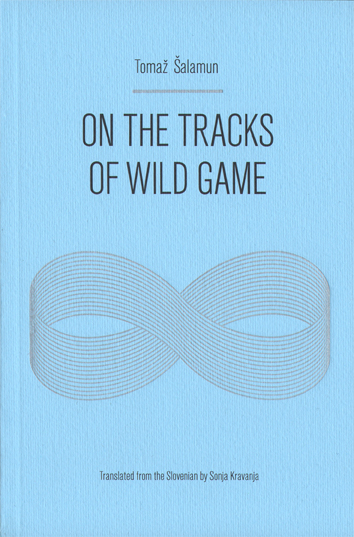From On the Tracks of Wild Game:
I gave her my black
elder to drink.
She dressed it,
then pulled away from it and tossed it
into the red spring.
Me and the tiger, how we were carrying wine and bread to her!

From On the Tracks of Wild Game:
I gave her my black
elder to drink.
She dressed it,
then pulled away from it and tossed it
into the red spring.
Me and the tiger, how we were carrying wine and bread to her!
Eastern European Poets Series #29.
Tomaz Salamun wrote the poems collected in On the Tracks of Wild Game [Po sledeh divjadi] in a time of personal crisis during the politically repressive years of the 1970s. It was with this book, which saw its first publication in 1979, that Šalamun made a complete transformation in moving from art-making to poetry.
The translation of this book was supported by the Slovenian Book Agency (Javna agencija za knjigo Republike Slovenije).
Born in Zagreb in 1941, Tomaž Šalamun attracted critical notice with his first collection, Poker, which was published when he was only twenty-five. His books have been translated into nineteen languages. He has received many honors and awards including the Prešeren Prize, the Jenko Prize, and a Pushcart Prize. Šalamun passed away in late 2014.
Tomaz Salamun's poems never cease to show me what language can be, as they come from a place of turbulent winds and the wild earth. On the Tracks of Wild Game is no different. Spilling with fantastic images and uneasy emotions, it is an absolute masterpiece. It turns me over into a new thing. Or as Salamun says, "shine dream/die sharpness." Or as he says, "I gave her my black / elder to drink. / She dressed it, / then pulled away from it and tossed it / into the red spring."
Dorothea Lasky
There is a grisly ecstasy to conscious life that few poets have, or have ever had, the nerve to approach but which Tomaz Salamun captures as casually as raindrops in a leaf cup. If not already apparent to his English-speaking audience, On the Tracks of Wild Game, a sort of psychedelic thriller cum opera of a collection, should firmly establish him as one of poetry’s all-time greatest lunatics.
Laura Solomon
When reading Tomaz Salamun's On the Tracks of Wild Game it's not all that easy to keep past and future apart. Salamun wrote these poems in Ljubljana in 1976, at a politically stressful time and after the author's first sojourn in the US. The spoor is still fresh, and freshly disorienting. Are we on the trail of Hölderlin, reading traces of divine indifference with the requisite bouquets? or is this some kind of pre-internet Flarf, human overload speaking in human tongues and flirting with the un-human?
Bob Perelman
The voice here is at once vivid and precise, while leading us into a landscape that seems somehow capable of shifting a few feet. Where so often language is used to simply reflect, Šalamun’s is the kind of speaking that invents the world around it as it goes, pulling the parts of things we already know into new configurations. It goes up in the teeth of fascist regimes and god and nature and captivity and enlightenment and food and time and bodies.
Blake Butler, Vice Magazine
Sonja Kravanja is an award-winning translator of Slovenian poetry into the English. In addition to the work of Tomaž Šalamun she has translated Edvard Kocbek, Iztok Osojnik and Aleš Debeljak.
Other UDP titles from Tomaž Šalamun here
Tomaž Šalamun on Poetry Foundation
Justice by Tomaž Šalamun on Black Ocean
ISBN: 978-1-933254-95-1
Trade Paperback
Perfect-bound. 108 pp, 5 x 7.5 in
Publication Date: March 01 2012
Distribution: SPD
Series: Eastern European Poets Series #29